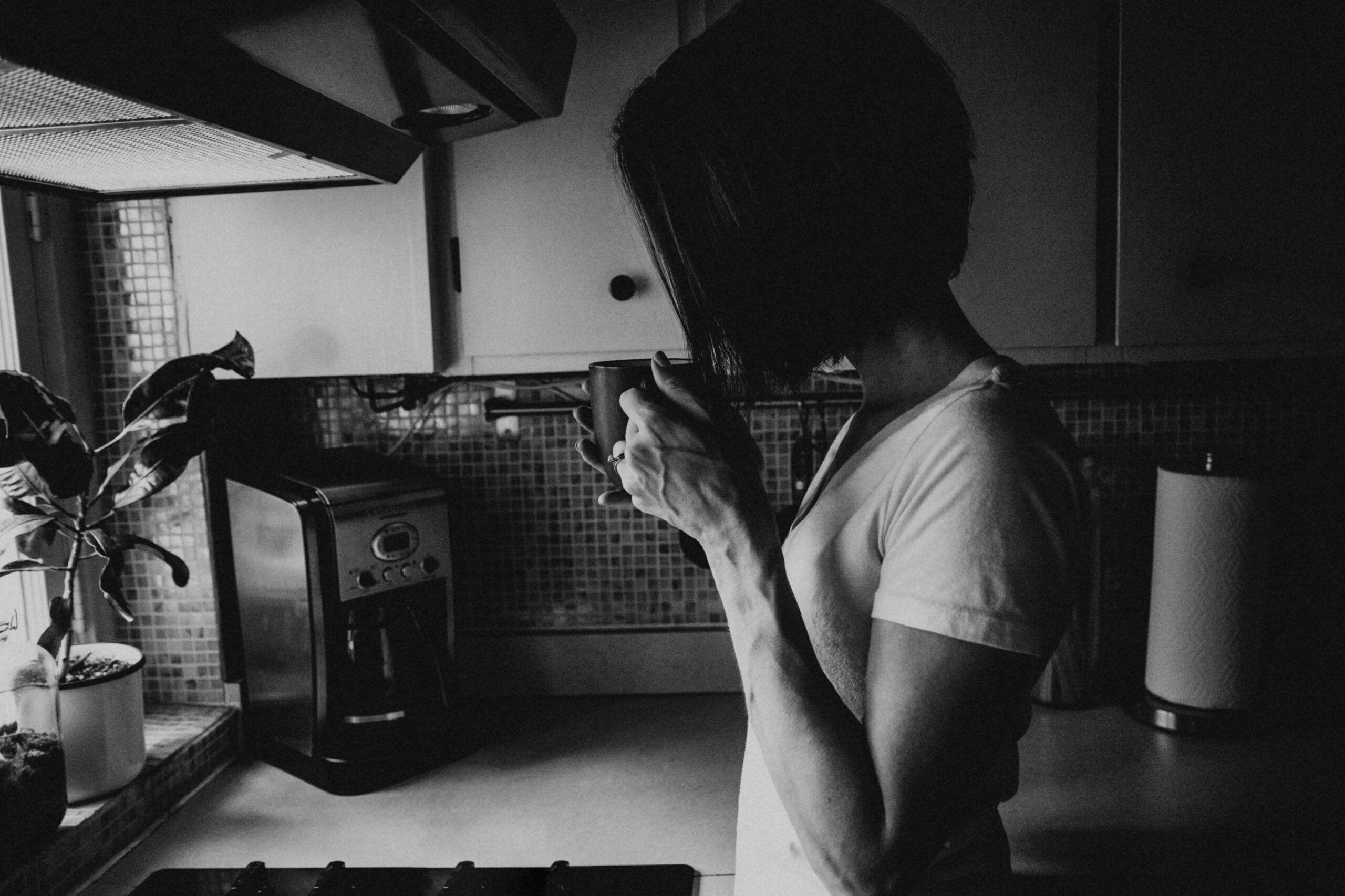Earlier this week, I spent several hours sorting through dishes, flatware and decorative items in my grandmother’s house while my aunt packed away photo albums in the next room. Gently wrapping a vase in newspaper, I tried to imagine what my grandma would say if she could see the state of her living room. She had died a week earlier at the age of 85, and my grieving family was tasked with addressing the “stuff” that a person leaves behind; everything from wedding rings and piles of clothing to half-empty bottles of shampoo in the shower.
As my aunt moved through the room, we offered each other a wide berth. It wasn’t an act of tension or hostility — on the contrary, I ached to give her a hug — but this is how one is forced to grieve during a pandemic. We don’t live in the same household, so it was the first time we’d seen each other in weeks. Instead of finding comfort in togetherness, we were actively distancing from one another as we worked through both feelings and tasks. My grandma didn’t die of COVID-19, but her loss will be marked with emotional and logistical complications related to the virus.
There won’t be a memorial service anytime soon, as restrictions in Ontario currently limit funerals to 10 people (not including staff) with a two-metre physical distancing measure in place. With four children, 11 grandkids and three great-grandchildren, my grandma’s immediate family exceeds this number before we even consider extended relatives and friends. Who would we cut out: her two brothers, some of the grandkids, her best friend? It’s an impossible task, and so we wait.
More on Broadview: What Emily Dickinson can teach us in a pandemic
We are being robbed of comfort and togetherness when it’s needed most, and that’s only the first layer of complications. Dealing with the practical responsibilities that come after a death is not easy under normal circumstances, but it’s become a Herculean task. Imagine sorting through a loved one’s belongings or preparing their home for the real estate market while physical distancing from family members. Taking home a box of sentimental items, then having to sanitize them or leave them in the garage until they feel ‘safe.’ Realizing that furniture cannot be donated at this time. Even the simplest things, like a sympathy card left in the mailbox or a delivery of flowers, can bring on a cloud of worry. What has been touched, and by who?
However difficult it may be, my family is far from alone in this situation. Julie Gushul of Burlington, Ont., lost her mother, Jane, on March 12. Jane’s death was unexpected and has rocked the close-knit family. They were able to have a small memorial service as regulations were less strict at the time, but no one was able to hug or even shake hands. Fewer people attended than Julie expected and while she understood why, she was crushed that her mother’s life couldn’t be celebrated properly. “She deserved so much more,” Gushul lamented quietly, calling her mother “everything” to their family.
Gushul’s now-widowed father is 80 and suffers from hearing loss. He has never managed his own finances and is stricken with grief after suddenly losing his partner of over 50 years. While they live in separate households, Gushul and her sisters have chosen to see him regularly. “I don’t think he could make it through without us,” Gushul explains, noting that they act with caution.
“When someone passes, you experience the new normal without that person, but we can’t do that, because there is no normal in the outside world.”
Gushul and her sisters have been managing a sea of paperwork related to their mother’s estate, dealing with various professionals at a distance. While some appointments can be managed remotely, her father struggles to hear on the phone and must repeatedly give permission for his daughters to step in. When an in-person meeting has been necessary, such as bringing end-of-life documentation to the bank or signing multiple documents, it’s been awkward and impersonal. “There’s no privacy because we have to space out and stand six to eight feet apart,” Gushul says. A closed office couldn’t meet the need, so an open space was used.
Banks, lawyers, realtors, funeral homes and church leaders are finding ways to adapt how they provide services, but the impact on grieving families remains heavy. Not only are we dealing with the emotional weight of loss, we’re managing the logistics of death while isolated with our grief.
“When someone passes, you experience the new normal without that person, but we can’t do that, because there is no normal in the outside world,” Gushul says, describing the frozen state of mourning she’s in. “I have no idea what my life is going to be like after this.”
Painful as it is, when all of this is over, we’ll finally be able to gather to remember and celebrate the lives of those we lost. There is no timeline on grief, after all, and Gushul certainly hopes for a second chance: “We’ll have to do something again, because [the funeral] wasn’t enough.”
Broadview is an award-winning progressive Christian magazine, featuring stories about spirituality, justice and ethical living. For more of our content, subscribe to the magazine today.















